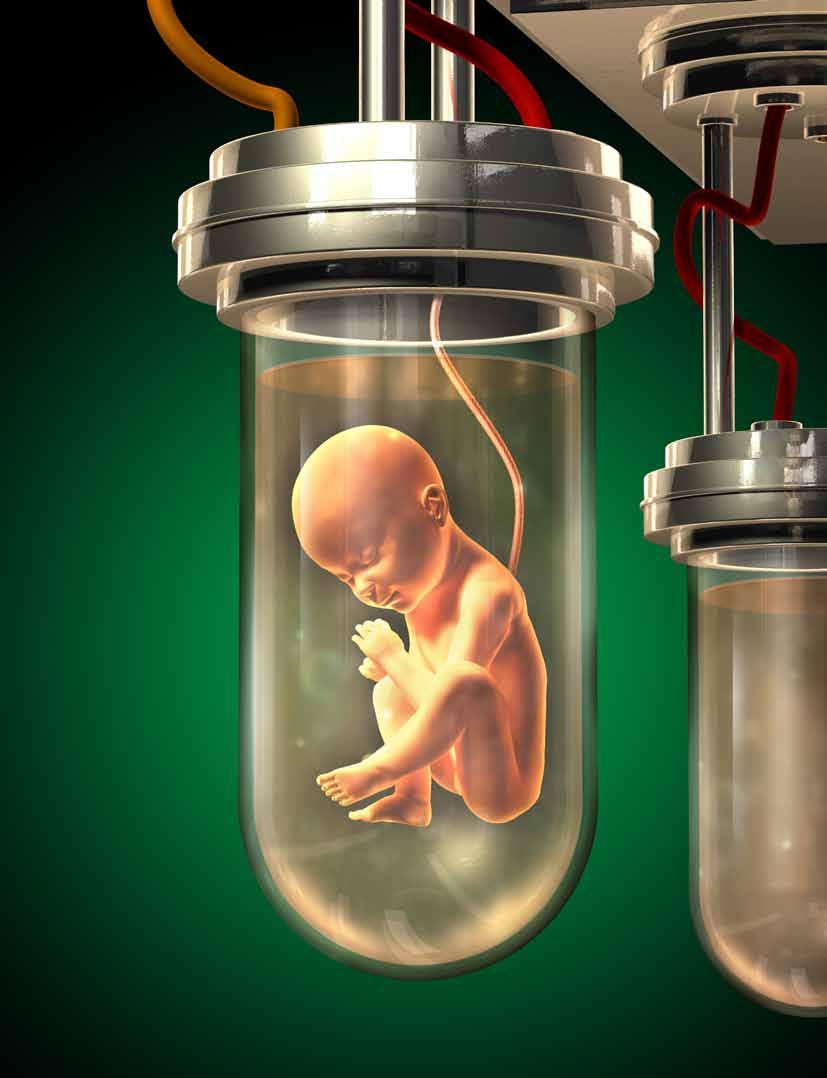
3 minute read
Genetic Engineering: Blessing or Curse?
Genetic engineering is extremely complicated to do, but thankfully it is not too complicated to talk about. As Christians, we don’t need to grasp the intricacies of nucleotides and deoxyribonucleic acid (DNA) to discuss genetic engineering as a blessing or curse. So relax! What follows is very basic.
Definition
Advertisement
Genetic engineering is the alteration of an organism’s genetic material to eliminate undesirable characteristics or to produce desirable new ones.
How is this done?
The twisted strands of our DNA contain our genetic code. If stretched out, our total DNA would be 2.0×10 13 meters, the equivalent of nearly 70 round trips to the sun! To keep this very simple, think flat—in two dimensions. Think of the DNA as a long strip made up of interlocking pieces like the pieces of a jigsaw puzzle. Our genes, which determine our characteristics, consist of a particular sequence of “pieces.” For example, the gene for eye color might be a sequence of four pieces and the gene for hair color a sequence of six pieces, etc.
The Human Genome Project, completed in 2003, sought to identify all these sequences of “pieces” of our approximately 30,000 genes. Once we know their location, it becomes theoretically possible to replace defective genes. For example, if we were to identify the defective gene that causes cystic fibrosis, we could remove that sequence of “puzzle pieces” and splice in a non-defective sequence. It would also become possible to enhance characteristics. Find the gene responsible for muscle strength and replace it with a gene that produces greater muscle strength, and we could produce champion athletes. The whole question of athletes using steroids would become obsolete!

Is this being done?
Genetic engineering in plants and animals has been done for centuries using cross-breeding techniques. Today it can also be done at the genetic level, producing things like crops that are resistant to herbicides or cows that produce more and better milk.
Manipulating the genetic code as described above is not being used currently in human beings. Genetic engineering presents many ethical problems including using human subjects in necessary research. Nevertheless, you can be assured that scientists will continue to pursue this, and it is not a matter of “if” it will be used with human beings, but “when.” Young people today may face the possibility of “designing” their children.
What is the Christian to do?
Joni Eareckson Tada, a quadriplegic and champion for people with disabilities, said, “Drawing lines is necessary, not just because it is right, but because drawing lines is at stake.” We live in a society where people do not want to draw lines. Truth and morality are relative concepts. It is considered judgmental to call things wrong, but lines are necessary.
Dr. Ian Malcom, from the movie Jurassic Park, asserted, “Your scientists were so preoccupied with whether or not they could, that they didn’t stop to think whether they should.” The Bible speaks similarly, “’Everything is permissible’—but not everything is beneficial. ‘Everything is permissible’—but not everything is constructive” (1 Corinthians 10:23). It seems the Corinthians had been twisting Paul’s teaching about God’s grace into justifying sinful behavior. “Since God forgives, everything is permissible.” No, Paul says, not everything that can be done should be done.
Christians need to draw lines based on the truth of God’s Word. While we recognize science and technology to be blessings from God, we also realize that our selfish, sinful nature can misuse these blessings and take them too far. The potential to use genetic engineering to eliminate disease would appear to be a blessing. On the other hand, this genetic manipulation would need to take place on human embryos created through in vitro fertilization. This process has its own problems with discarding “poor quality” embryos and freezing others. If some of these problems could be eliminated, perhaps blessing could eventually come through the use of genetic engineering to cure disease. But we must be very, very cautious.
We need to draw the line, however, when it comes to designing human beings. This takes procreation out of the hands of God. In Genesis 30:1, barren Rachel cries out in anguish to Jacob, “Give me children, or I shall die!” Jacob angrily answers, “Am I in the place of God who has withheld from you the fruit of the womb?” Manipulating genes to “create” what we desire puts us in the place of God. It turns procreation into production and the gift of life into a commodity. It puts technology in the place of God. We must draw this line.
To have some fun and foster discussion on this issue, I recommend the movie Gattaca. With an adventurous story line, it presents a future with designed human beings and the problems that result.
Rev. Dr. James Lamb is Executive Director of Lutherans for Life. He can be reached at jlamb@lutheransforlife.org.










